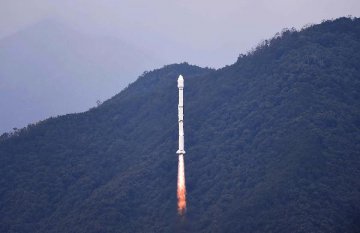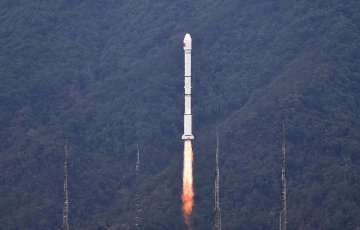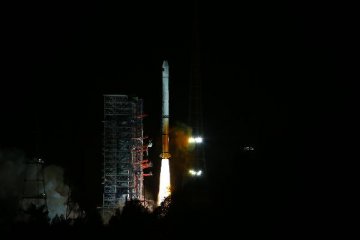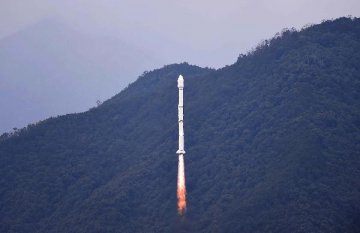
The application of China’s Beidou Navigation Satellite System (BDS) in downstream industries will speed up.
China will fully advance the research and development of Beidou III in the following five years, indicated Ran Chengqi, an official at the BDS, at the Eighth China Satellite Navigation Conference on May 24. Six to eight Beidou satellites will be sent into orbit in the second half of 2017. 11 Beidou satellites will be sent into orbit in 2018 and 11 satellites will be sent in 2019 to 2020. It will ensure the stable operation and improved performance of the BDS.
Global application under progress
It is learnt that the experiment on Beidou III satellite has been completed with breakthrough made in core technologies.
As one of the four major satellite navigation systems in the world, the BDS mainly covers the Asia-Pacific regions. As a new generation satellite navigation system, Beidou III will provide technical supports to the military-civil integration, the Belt and Road initiatives and other global strategies, indicated Liu Yan, deputy general manager of Guangzhou Haige Communications Group Incorporated Company (002465.SZ).
Ran also disclosed that China plans to speed up in advancing the establishment of the national comprehensive PNT (positioning, navigation and timing) system with the BDS as the core. It strives to build a unified and reliable national comprehensive PNT system by 2030 to provide quality services to global users.
The establishment of the PNT system will promote the signals of the BDS to the underground, the sky and the ocean and improve the service capacity of the BDS, indicated Ma Jiaqing, an official at the BDS.
Downstream application to speed up
Ran indicated that in terms of the application promotion, China will develop a new generation Beidou/GNSS products and promote their application in the public market with 100 million yuan.
The downstream application is a bottleneck in the BDS industry. Many exhibitors at the conference are rosy about the application of the BDS.
The Beidou industrial chain covers navigation satellites, receiving terminals and downstream applications. With the rapid development of high-accuracy industries, the downstream application will speed up in the future.
High-accuracy positioning services are transforming from professional industries to consumers, indicated Zhang Yi from Huawei Technologies Co., Ltd.
The BDS can be applied in more than 40 industries, indicated Xie Jihui from Beijing Unistrong Science & Technology Co., Ltd. (002383.SZ). It can be applied in farming, wind power generation and other industries.
The application of the BDS in geographical location systems will surge, said Tang Qiyong, an analyst from China Securities.
It is learnt that many enterprises are making more efforts in the downstream application of the BDS. Qianxun Web Technology focused on ground-based augmentation systems in previous two years. It will expand to the downstream this year. It has taken measures in mobile phones, vehicles and other industries.
The authorities are also promoting the downstream application of the BDS. Besides the guideline on the application of the BDS in transportation industries from the Ministry of Transport released in the beginning of the year, it will also release the guidelines on the implementation to promote the application of the BDS in the transportation industry, disclosed Li Jing from the China Transport Telecommunications & Information Center.
The BDS and the Arab Satellite Communications Organization (Arabsat) signed the Statement on the First China-Arab States BDS Cooperation Forum at the First China-Arab States BDS Cooperation Forum held on May 24. It set the China-Arab States BDS Cooperation Forum as a multilateral cooperation mechanism under the China-Arab States Cooperation Forum to promote the application of the BDS in Arab States.
The BDS is likely to be firstly implemented in Saudi Arabia, UAE and Egypt, indicated Sun Degang from Shanghai International Studies University.
Translated by Star Zhang























Latest comments